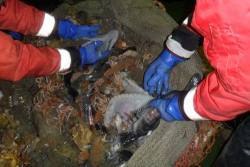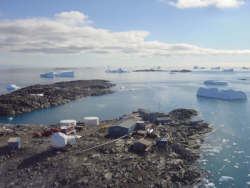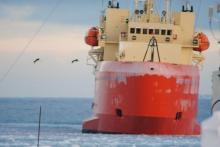What Are They Doing?

The loss of hemoglobin is considered a neutral mutation; one that neither enhances nor reduces fitness. However, the team hypothesizes that the loss of hemoglobin may be an advantage because hemoglobin promotes the formation of reactive oxygen species that damage macromolecules. Overall, the team's research was aimed at understanding the unique physiological and biochemical traits that have arisen in fishes during their evolution in the chronically cold waters of the Southern Ocean.
Where Are They?

Latest Journals

Kristin O'Brien is an associate professor of biology at the Institute of Arctic Biology within the University of Alaska Fairbanks. Her research is aimed at understanding how fishes maintain energy production at cold temperatures. She investigates the unique physiological and biochemical adaptations that have arisen in Antarctic fishes during their evolution in the icy cold waters of the Southern Ocean. Learn more about Dr. O'Brien and her work here.

Lisa Crockett is an associate professor of physiology in the Department of Biological Sciences at Ohio University. Lisa's primary interests are in metabolic cold adaptation and how membrane compositions are reorganized with variations in body temperatures. Lisa first began working in Antarctica as an undergraduate student with Dr. Art DeVries who discovered the antifreeze glycoproteins in Antarctic fishes. In addition to her role as collaborator in Antarctica, she also studies temperate fishes (e.g., striped bass, saltmarsh minnows and American eel) and the physiological and biochemical mechanisms that enable these animals to tolerate a wide range of temperatures and salinities. You can read more about her work here





